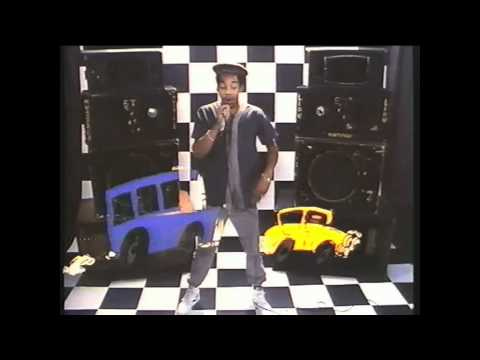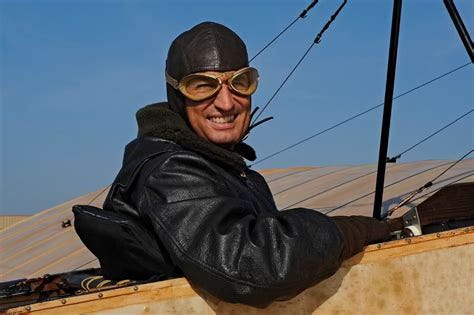Don't Panic: Here Come The Flying Producers !
There are philosophical existential questions like: why is the western alphabet in the order it is ? Or how often have you accidentally photo bombed some random family’s holiday snaps ? And then there are professional questions like: what would the Saudi Arabian version of Love Island look like ? Or could you make Ru Paul’s Drag Race for an Amish audience ?
One group of people who could probably answer the latter if not the former are the subject of this essay: Flying Producers. Cue the only piece of music I can think of that mentions producers:
Hamburgers and hamburger restaurants existed before salesman Roy Kroc came along. But standardisation of the production of hamburgers didn’t. Kroc realised that making the same product in the same way in the same surroundings could be a commercial success and he turned a hamburger joint in California run by two brothers in 1937 into a chain that now serves 69 million customers a day in 100 different countries and prides itself on having the same product in any and all of its restaurants: McDonalds - maybe you’ve heard of it? Of course there are regional menu additions (McAloo Tikki Burger from McDonalds India or McDonald’s Congee from China anyone ?) but the chain prides itself on standardising kitchen equipment, decor, service ingredients and, of course, core menu.
Whatever your views on McDonalds, you can probably see the commercial potential in standardising the method of production and having a product in settings that customers recognise wherever they are in the world.
A TV format is much the same (though with fewer pickles usually) - requiring the ingredients that make the product work in its home territory to anywhere else it’s sold paramount. McDonalds maintain strict oversight into products, equipment and levels of service used by outlets using their name. TV producers and IP owners have the same requirements when it comes to formats according to Ella Umansky, Vice President, Global Creative & Production Support for ITV Studios: “Building a format is all about balancing consistency with sensitivity. To build a global brand, you need a clear, recognisable format beats and a consistent look and feel. If enough versions stray too far and subtly alter too much, you are in danger of your brand dissolving before your eyes”.
Like any multinational corporation with branch offices and retail outlets in different parts of the world, McDonalds has regional managers and systems with manuals in place to check and ensure a certain level of brand consistency. The TV industry doesn’t have manuals and regional managers for its formats - it has, natch, much sexier-sounding Bibles and Flying Producers. Fremantle is one of the largest producer/distributors in the world. Operating across 180 countries with formats like Got Talent, L’Amour Est Dans Le Pré (Farmer Wants a Wife) and Family Feud, it requires a careful eye. Chris O’Dell - Fremantle’s Head of Global Entertainment Production based in London oversees a team of Flying Producers. “Flying Producers are a key ingredient in the success of rolling out a format internationally.” he says, “Their job is to both understand and learn a format when it’s in its early stages. A Flying producer will then take those lessons and ensure that further versions take all the best practice, advice, and production techniques, giving everybody the best possible chance to make a successful version of the format in their region. However, they also have an important role in helping adapt an initial piece of IP for a market, both culturally and for scheduling and budget. This allows international producers to take the core concept make it work well in different markets.
A small pause here to address if you’re picturing a flying producer like this:
Sorry to disappoint. They’re called Flying Producers because they can be asked to go anywhere in the world.
O’Dell oversees a team of Flying Producers that many (including me) consider some of the best in the business. He reckons a Flying Producer first and foremost “Needs to be a great Television producer. All of my team have a wealth of experience in producing and directing at a senior level, and it’s instrumental in providing the best possible advice to any local production”. So what do they actually do? Chris O’Dell again: “ A Flying Producer is there at the beginning, middle and end of all productions, to help work with the local team to make them fully understand all aspects of a show, from casting, scheduling, budgeting and technical know-how, to give them the best chance to be prepared for the production stage. After helping with pre-production workshops and set up meetings the Flying Producer will be on the ground, with the team during the key parts of production. Typically normally during rehearsal and first recordings if it’s a studio show or on location if it’s a reality show. The Flying Producer will advise and very much be an informed extra pair of eyes and ears to help local production. Most shows will also go through post- production for advice, comments and any potential red flags, to give the format the best possible chance of success before it goes to air. Most importantly, Flying Producers are there to help production fully understand the potential of the format that they’ve taken on.
In the olden days (before Covid), Flying Producers like Fremantle’s Michelle Foreman were on the road constantly. An experienced producer of everything from quiz and shiny floor entertainment shows to reality, nowadays, depending on the production, she can work with international producers virtually - as much to reduce her carbon footprint as anything else. But she still can be anywhere in the world for up to 10 days a month. Homebodies need not apply and travel is a component of the job that Foreman enjoys, “We are lucky to experience all kinds of different cultures and meet different people in this role, so whilst remaining true to our formats, we need to keep an open mind, work collaboratively and be adaptable when and if needed.
Of course to a defensive local producer, the arrival of a Flying Producer from the rights holder can be seen as a raid from The Brand Police - there to teach them how to do their job or to force them to make a show that might jar with local cultures. A good Flying Producer is usually aware of this and as well as having “a very resilient body clock”, Chris O’Dell believes “A Flying Producer needs to be a bit of a diplomat. You’re often working in different countries surrounded by different pressures, languages and different cultural demands which means you’ve got to be able to work with the local team to provide considered, calm and constructive advice”.
As well as witnessing first-hand what mistakes can be made on producing a format, Flying Producers become expert in passing on best practice. Michelle Foreman: “Two days ago I just did a workshop with Shania Twain and Katherine Ryan as they joined the jury for the 4th season of Canada’s Got Talent about best practices for a talent judge. I also did the same recently for Carrie Underwood for the new season of American Idol and it’s all about confidently assuring them that they really are in “the best of hands” with our teams.
It’s a wise local producer who will take advantage of someone who can help them not to look like an idiot. In my experience, a Flying Producer is just that person.
ENDS




